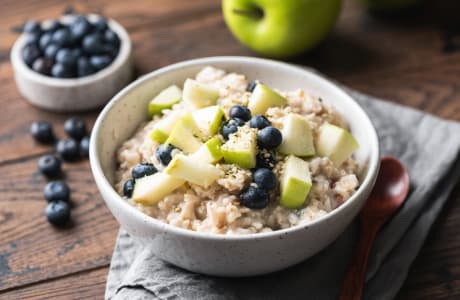Overview

The foods you eat contain nutrients, such as vitamins and minerals. Potassium is a nutrient. Your body needs the right amount to stay healthy and work as it should. You can use the list below to help you make choices about which foods to eat.
The foods in this list have less than 200 milligrams (mg) of potassium per serving.
Fruits
- Applesauce, ½ cup
- Blueberries, ½ cup
- Grapes, 9 grapes
- Pineapple, ½ cup
- Raspberries, ½ cup
- Watermelon, ½ cup
Vegetables
- Cucumber (peeled), ½ cup
- Eggplant, ½ cup
- Green beans, ½ cup
- Lettuce, 1 cup
- Peas, ½ cup
- Radish, 1 radish
Grains
- Bagel (plain), 4-inch
- Bread, 1 slice
- Cereal (puffed rice or puffed wheat), 1 cup
- Oatmeal (cooked), ½ cup
- Pasta and noodles (cooked), ½ cup
- Rice (cooked), ½ cup
- Tortilla (flour or corn), 1 tortilla
Dairy and dairy alternatives
- Butter, 1 Tbsp
- Cheese, 1 oz
Meats and other protein foods
- Eggs, 1 egg
- Hotdogs (beef or pork), 1 hotdog
Work with your doctor to find out how much of this nutrient you need. Depending on your health, you may need more or less of it in your diet.
What foods may contain hidden potassium?
Some foods and drinks may have hidden potassium. Food labels do not have to show the amount of potassium, but some do. Even if potassium is not listed, it may still be in that food.
Potassium may be found in:
- Diet or protein drinks and diet bars.
- Sports drinks. These are meant to replace potassium you lose during exercise.
- Certain herbal or dietary supplements.
Credits
Current as of: October 7, 2025
Current as of: October 7, 2025